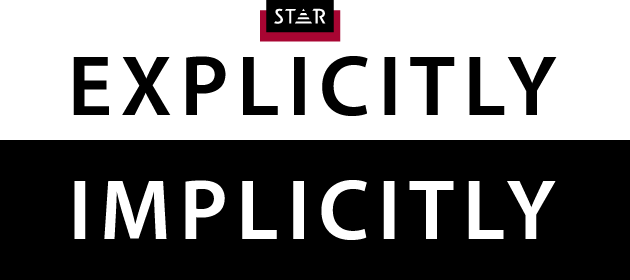
When to use explicitly or implicitly
Explicitly and implicitly are two words you may write in a letter or in an email to a dear friend, a confidant or a colleague at work, but some of us still get a little confused.
We either write trust explicitly or trust implicitly. What’s causing this confusion? Aren’t they both the same words!
The short answer is no; they’re not the same nor are they interchangeable.
The adverb, explicitly means, to be clear about something, leaving no room for question or doubt; to be clear in a detailed manner. While implicitly, another adverb, means to state something in a way that is not directly expressed. In other words, it is without question; it’s implied.
If you can substitute absolutely for implicitly then you’re on the right track.
Therefore, if you say that you trust her explicitly then you trust her without a doubt. It’s a final decision.
It’s common to say trust implicitly, as your trust is so strong that it goes without saying. There’s no need to be explicit about trust. You’re not trying to avoid any confusion by stating it directly.
We found this short and easy-to-understand comparison between the two.
Quick Recap
- Explicitly (adv.)
- to be clear about something; leaving no room for question or doubt; to be clear in a detailed manner
- Implicitly (adv.)
- to state something in a way that is not directly expressed
Like English Trivia?
You might like to take our English SpellingQuiz for Superheros.
Fin out how good your English really is by checking how good you are with the most misspelled words in English. Give it a try now.


